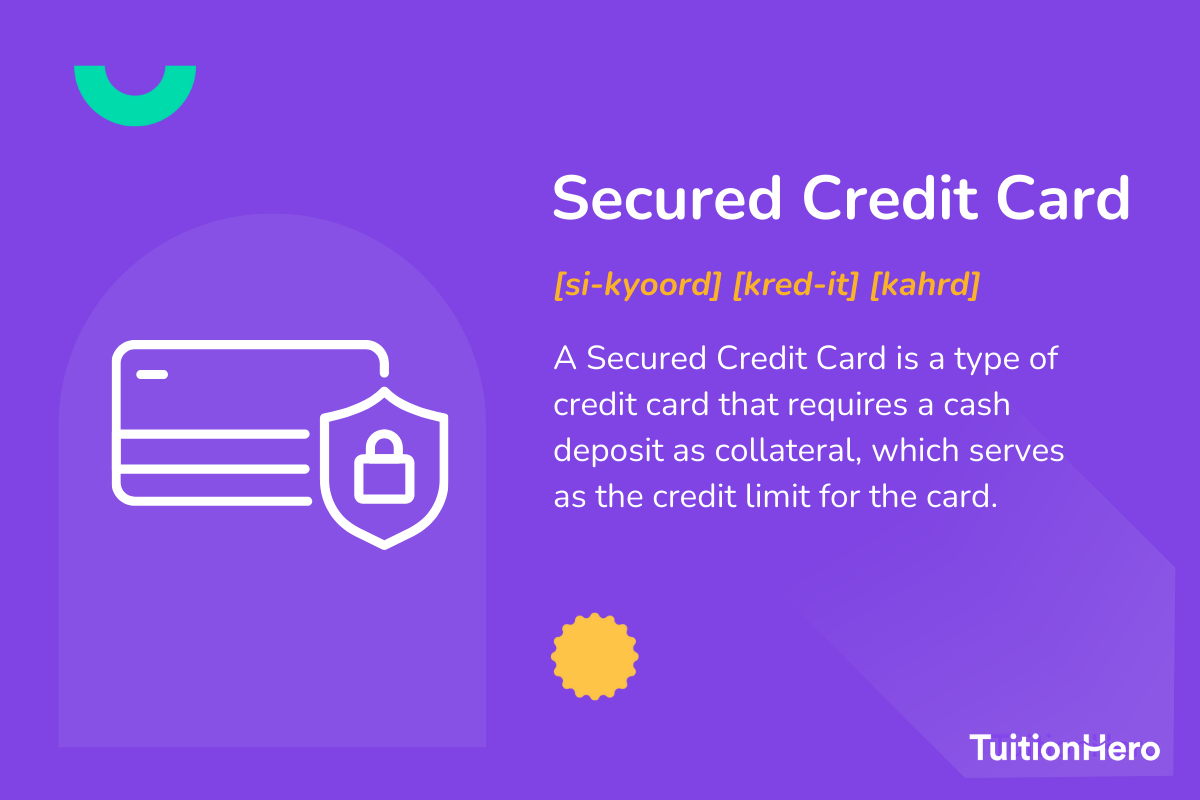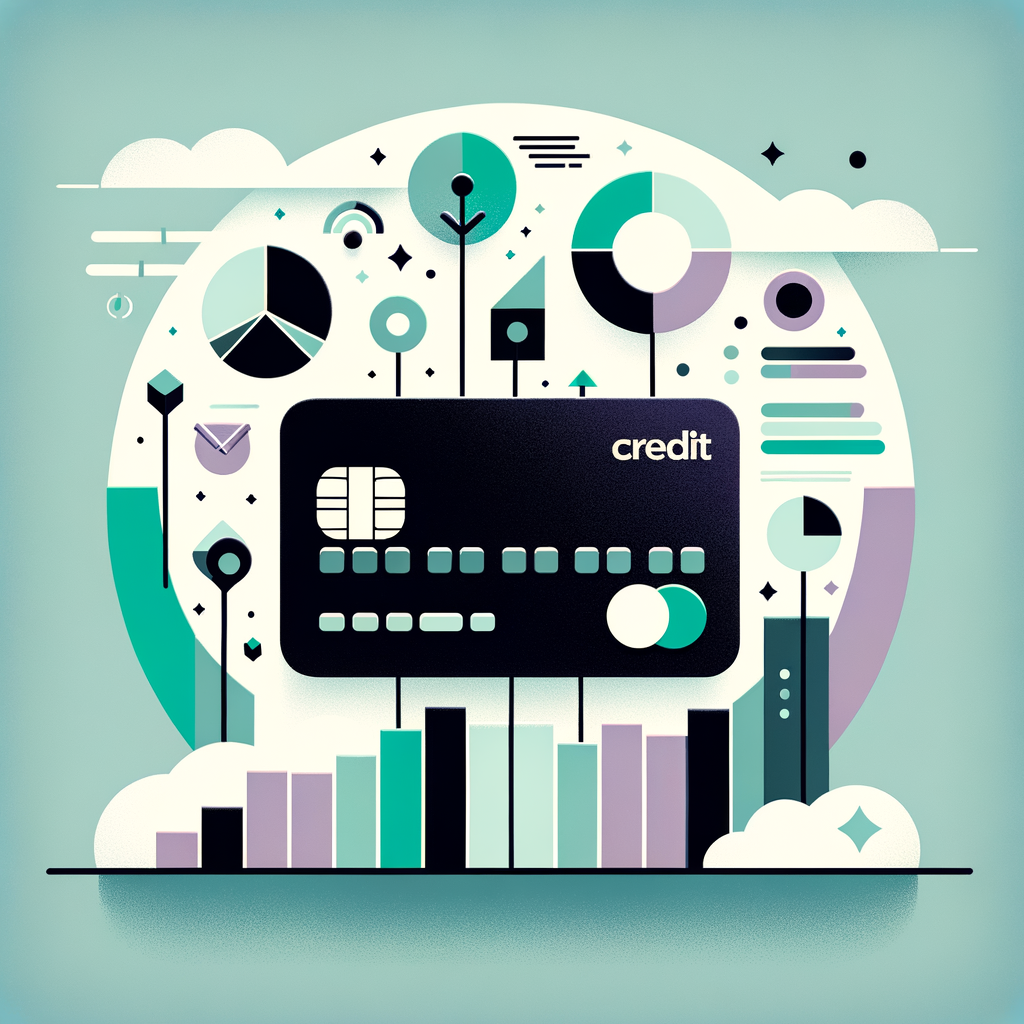Advertiser Disclosure
Last update: December 16, 2024
8 minutes read
Secured Credit Cards
Ever wondered how secured credit cards work? Learn how they can be a stepping stone to building better credit.

By Derick Rodriguez, Associate Editor
Edited by Brian Flaherty, B.A. Economics
Learn more about our editorial standards



By Derick Rodriguez, Associate Editor
Edited by Brian Flaherty, B.A. Economics
Learn more about our editorial standards
Understanding credit can be tricky. One common question is: why choose a secured credit card? In this post, we cover what secured credit cards are, how they work, and their role in building a healthier financial future. For a deeper dive into financial decisions that affect your future, check out our insights on refinancing student loans.

Key takeaways
- Secured credit cards require a cash deposit, serving as your credit limit
- Responsible usage can contribute to building or improving your credit history
- Graduating to an unsecured card demonstrates improved credit health and financial responsibility
What are secured credit cards?
Secured credit cards stand out because they require a cash deposit from the user, which typically acts as the credit limit. These financial tools offer a path to build or rebuild your credit score especially if you don’t qualify for a traditional credit card.
- Deposit required: You provide a cash deposit that becomes your credit limit.
- Usage: You use a secured credit card like any other credit card, including making purchases and monthly payments.
- Credit building: Your payment activity may be reported to credit bureaus, aiding in building your credit history.

What are the benefits of choosing a secured credit card?
Secured credit cards offer a lifeline for people looking to establish or repair their credit. They’re more accessible to a wider range of financial backgrounds because the deposit minimizes the issuer's risk.
- Accessible credit-building tool
- May help transition to unsecured cards
- Deposit is refundable under certain conditions
In my experience, secured credit cards can also be a very valuable tool to learn good credit habits. In college, several of my friends opted for a secured credit card to build credit and learn credit card best practices, like paying off your balance in full each month.
I think that this can be a less risky way to learn the ropes. Unlike an unsecured credit card, you can’t spend more than your initial deposit on a secured card and required monthly payments are typically low.
Understanding unsecured vs. Secured credit cards
While unsecured cards don’t need a deposit and usually come with rewards, they can be harder to get with a low credit score. Secured cards, though simpler, serve as a crucial stepping stone in credit improvement efforts.
Common concerns with secured credit cards
Though beneficial, secured cards come with their set of challenges, like high fees, interest rates, and, usually, low credit limits, which can affect your spending power and credit utilization ratio.
In addition, secured credit cards typically don’t come with the type of generous rewards you’ll find on unsecured cards. That usually means less cash back and fewer points.
Is a secured credit card right for you?
If you're rebuilding your credit or starting fresh, and have the funds for a deposit, a secured credit card might be a good fit. It’s crucial to assess your financial situation and spending habits before applying.
Using secured credit cards for credit building
To use a secured credit card responsibly to build or improve your credit, make sure to:
- Keep balances low to minimize your credit utilization ratio
- Pay on time every time to build a track record of good monthly payments
- Monitor your credit score for growth opportunities
Transitioning from a secured to an unsecured credit card
With consistent, responsible use, you may eventually qualify for an unsecured card. Some issuers even offer a direct upgrade path, refunding your initial deposit once you've demonstrated financial responsibility.
Secured credit cards are much more than just a financial product; they're a tool that, when used wisely, can pave the way to a strong financial future. For people starting their journey or looking to correct past financial mistakes, understanding and using these cards can mark the difference between a stressful financial existence and a successful one.

TuitionHero Tip
If you're exploring ways to boost your credit or manage your student loans more effectively, discover how student loans affect your credit scores at TuitionHero.
Differentiating the features of secured credit cards
The initial deposit not only serves as security but also directly influences your credit limit. This arrangement shows a high level of responsibility on the cardholder's part, as the deposited amount typically ranges from $200 to $300. Because this deposit serves as the collateral backing your credit limit, your credit card issuer is entitled to keep your deposit in the case of non-payment.
Building a good credit history with a secured credit card depends on consistent, responsible use. Payments made on time are crucial, as they’re typically reported to three major consumer reporting agencies.
This reporting can significantly affect your credit score, potentially positively affecting it over time. Credit building isn’t immediate but follows a trajectory of financial discipline, potentially taking six months to a year to reflect on your credit score.
Understanding the fee structure
One of the more immediate concerns for potential secured card users is the fee structure, which might include application or annual fees. While these fees are a common aspect of secured credit cards, they vary greatly between issuers. It's crucial to carefully review these fees since they can reduce the credit-building benefits if they’re excessively high.
Interest rates, another form of credit card fee, are also typically higher on secured credit cards. If you want to avoid paying interest on your purchases, make sure to pay off your full balance by the due date each month.
Effect on credit utilization ratio
Maintaining a utilization ratio under 30% is advised to boost your credit score. Since secured credit cards usually have lower limits, careful spending is needed to ensure your utilization remains within this recommended range. High utilization can signal to lenders that you’re over-reliant on credit, potentially hurting your credit score.
Strategies for effective use
After a period of disciplined use and timely payments, transitioning from a secured to an unsecured credit card becomes a concrete goal. Issuer policies on account reviews for upgrade eligibility can vary, with some offering direct upgrades after a period of responsible use—usually around seven months. This progression is a key milestone in credit improvement journeys, displaying improved financial health and responsibility.
Compare private student loans now
TuitionHero simplifies your student loan decision, with multiple top loans side-by-side.
Compare Rates
Is a secured credit card right for you?
Evaluating whether a secured credit card aligns with your financial goals involves a deep personal assessment. Having available cash for the deposit is just the first step.
Understanding and committing to the disciplined management of your financial habits is crucial for success. This self-reflection and commitment are foundational before entering into an agreement with a secured credit card issuer.
Dos and don'ts of using secured credit cards
When navigating the world of secured credit cards, it's crucial to understand both the benefits and pitfalls. Here are some key dos and don'ts to help you make informed decisions and effectively build your credit.
Do
Highlight the importance of responsible usage to build credit.
Emphasize the security deposit requirement as a key feature.
Mention the possibility of transitioning to an unsecured credit card.
Include practical advice on maintaining a low credit utilization ratio.
Don't
Don't overlook the potential fees and high-interest rates associated with secured credit cards.
Don't promise immediate improvements in credit scores.
Avoid suggesting that secured credit cards come with the same rewards as unsecured cards.
Don't ignore the potential negative effect of closing a secured credit card on credit scores.

Advantages and disadvantages of using secured credit cards
Secured credit cards can be a valuable tool for building or repairing credit, but they come with both advantages and disadvantages. Below, we outline the key benefits and drawbacks to help you decide if a secured credit card is the right choice for your financial journey.
- Accessible for those with poor or no credit: Requires a deposit, making it easier to obtain than unsecured cards.
- Credit building opportunity: Responsible usage can improve credit scores by reporting to credit bureaus.
- Lower financial risk: Limited spending to the amount of the initial deposit, reducing the risk of accruing large debts.
- Potential transition to unsecured cards: Demonstrates financial responsibility, possibly leading to eligibility for unsecured cards.
- Refundable deposit: The initial deposit is returned if the account is closed in good standing or upgraded to an unsecured card.
- Upfront cash requirement: Requires a deposit, which may not be feasible for everyone.
- Higher fees: Often come with higher fees, such as annual or application fees.
- Limited credit limits: Typically have low credit limits, which can impact the credit utilization ratio.
- Higher interest rates: Generally, higher interest rates compared to unsecured cards.
- Fewer rewards: Usually offer fewer rewards or benefits compared to unsecured cards.

Why trust TuitionHero
At TuitionHero, we focus on setting up students for financial success. We offer private student loans and refinancing options, along with educational resources. From getting your first credit card to navigating scholarships and FAFSA, we're here to help. Explore student-friendly credit card choices with us and start building a strong credit history. Let's embark on this journey together with confidence.
Frequently asked questions (FAQ)
Yes, students with minimal income can qualify for a secured credit card because the required deposit reduces the lender's risk. The deposit ensures that the lender can recover funds if the student fails to make payments.
It's a practical option for students starting to build their credit. For students looking to manage their finances better while in school, exploring scholarship opportunities can also be beneficial alongside managing a secured credit card.
Closing a secured credit card can temporarily lower your credit score by affecting your credit utilization ratio and the age of your credit accounts. However, if you're closing your account to graduate to an unsecured card and your secured card account is in good standing, the long-term benefits to your credit can outweigh the temporary dip. Keeping your first unsecured card open can help build your credit history, which is crucial for your credit score.
The effect on your credit score from secured and unsecured credit cards is generally the same, provided the card issuer reports to the credit bureaus. It's your use of the card—keeping balances low, paying on time—that influences your credit score, regardless of the type of card. It's vital, however, to ensure that any card you choose reports to all three major credit bureaus for maximum credit-building potential.
If you miss payments on a secured credit card, the card issuer may use a portion or all of your deposit to cover the missed payments, depending on the terms of your agreement. This action could lead to a decrease in your credit limit and potentially hurt your credit score. It's crucial to maintain timely payments to avoid such consequences and protect your deposit.
Transitioning from a secured to an unsecured credit card can boost your credit score, especially if the transition is due to an improved credit history and responsible card usage. This switch signals to credit bureaus that lenders view you as a lower-risk borrower.
Unsecured credit cards also often have a higher credit limit than secured credit cards. That typically translates into a lower utilization ratio, which can boost your credit score too. Make sure to continue practicing good credit habits with your new unsecured card to improve your credit score.
Final thoughts
Embracing a secured credit card can be a strategic move towards building or rebuilding your credit. It’s a journey that requires discipline, but the potential rewards for your financial future are huge.
As you start this path, remember that every financial decision plays a role in shaping your creditworthiness. From making the initial deposit to transitioning to an unsecured credit card, each step is a learning opportunity and a chance to demonstrate financial responsibility. For more guidance on navigating your financial and educational journey, explore the resources available at TuitionHero.
Source
Author

Derick Rodriguez
Derick Rodriguez is a seasoned editor and digital marketing strategist specializing in demystifying college finance. With over half a decade of experience in the digital realm, Derick has honed a unique skill set that bridges the gap between complex financial concepts and accessible, user-friendly communication. His approach is deeply rooted in leveraging personal experiences and insights to illuminate the nuances of college finance, making it more approachable for students and families.
Editor

Brian Flaherty
Brian is a graduate of the University of Virginia where he earned a B.A. in Economics. After graduation, Brian spent four years working at a wealth management firm advising high-net-worth investors and institutions. During his time there, he passed the rigorous Series 65 exam and rose to a high-level strategy position.
At TuitionHero, we're not just passionate about our work - we take immense pride in it. Our dedicated team of writers diligently follows strict editorial standards, ensuring that every piece of content we publish is accurate, current, and highly valuable. We don't just strive for quality; we aim for excellence.
Related posts
While you're at it, here are some other college finance-related blog posts you might be interested in.
Shop and compare student financing options - 100% free!

Always free, always fast
TuitionHero is 100% free to use. Here, you can instantly view and compare multiple top lenders side-by-side.

Won’t affect credit score
Don’t worry – checking your rates with TuitionHero never impacts your credit score!

Safe and secure
We take your information's security seriously. We apply industry best practices to ensure your data is safe.
Finished scrolling? Start saving & find your private student loan rate today
Compare Personalized Rates




